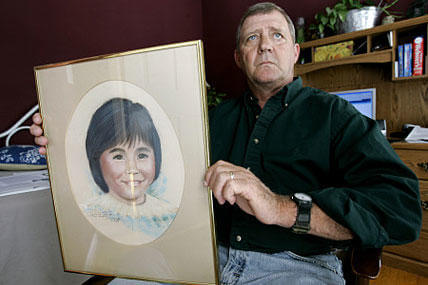Marines and their families assigned to Camp Lejeune, N.C., finally will receive medical care for illnesses caused by exposure to toxins in the base water following years of waiting and a tally of sickness and death that could reach close to one million.
President Barack Obama on Monday signed a law to extend medical care to people sickened by what has been called the largest episode of military base water contamination. The president said at the White House ceremony the country has a “moral and sacred duty” to care for those sickened by the contaminated drinking water.
Under the new law, those who served at or lived on Camp Lejeune at least 30 days between Jan. 1, 1957, and Dec. 31, 1987, will be able to receive medical care for cancer of the esophagus, lung, breast, bladder and kidney, as well as for leukemia, multiple myeloma, myleodysplasic syndromes, renal toxicity, hepatic steatosis, female infertility, miscarriage, scleroderma, neurobehavioral effects and non-Hodgkin’s lymphoma.
“This has been a long time coming, and unfortunately, many who were exposed to contaminated water at Camp Lejeune over the years have died as a result and are not with us to receive the care this bill will provide,” said Sen. Richard Burr, R-N.C., in a statement in July after the Senate passed the bill.
Reports have put the number of people exposed to the contaminated water anywhere from 750,000 to one million. Chemicals found in the water included trichloroethylene, tetrachloroethylene, benzene and vinyl chloride.
Burr said the base water contamination “is the largest recorded environmental incident on a domestic Department of Defense installation.”
Parents like retired Marine Master Sgt. Jerry Ensminger, whose 9-year-old daughter died from a rare form of leukemia in 1985, have fought for years to draw attention to the contaminated drinking water at Lejeune. He has vowed to continue his fight to hold Marine leaders accountable even after the bill passed the Senate.
Before Burr’s bill reached the House -- where it also passed overwhelmingly -- he first had to press fellow Republican Sen. Jim DeMint of South Carolina to release the bill for a Senate vote.
DeMint used a Senate privilege to block a vote on the law because he was afraid people who were never assigned or lived at Lejeune would get care fraudulently.
The conservative senator’s hold on the bill was roundly criticized by veterans.
“Senator DeMint's concern for some insignificant, possible, future fraud stands in stark contrast to the tens, possibly hundreds, of thousands of current, proven suffering of persons already exposed to these poisonous chemicals. The senator needs to re-evaluate his priorities!” wrote one commenter on the Military.com forums, who identified himself as a Navy retiree.
“Maybe Mr. DeMint should be required to drink & use the same water that these Marine victims and their families suffered from,” wrote Bob Bousquet, who also identified himself as a Navy veteran.
DeMint was holding out to amend the bill to include specific language addressing fraud. He relented, satisfied that Department of Veterans Affairs already has in place provisions for dealing with fraudulent claims.
Though the bill signed Monday had widespread support in both houses of Congress, it took many years to win approval and represents only the latest example of the Pentagon and VA's history of ignoring or delaying health care for collaterally sickened servicemembers.
As with post-traumatic stress disorder and Agent Orange exposure during the Vietnam War, officials initially denied any links to the psychological and health problems to combat or exposure to defoliants sprayed widely over Vietnam.
The same pattern played out in the decade following Operation Desert Storm as veterans of the war began turning up with chronic headache, widespread pain, cognitive difficulties, debilitating fatigue, gastrointestinal problems, respiratory symptoms and more. It was only in 2010 that the VA began encouraging Gulf War vets to reapply for compensation after having been turned down previously.
Even with the bill to address health problems arising from contaminated water at Lejeune, the government is not actually blaming the chemical-tainted water.
What the new law says is that veterans and family members who were at the base longer than 30 days between Jan. 1, 1957, and Dec. 31, 1987, are “eligible for hospital care and medical services [for certain illnesses or conditions] notwithstanding that there is insufficient medical evidence to conclude that such illnesses or conditions are attributable to” being at Lejeune.




























